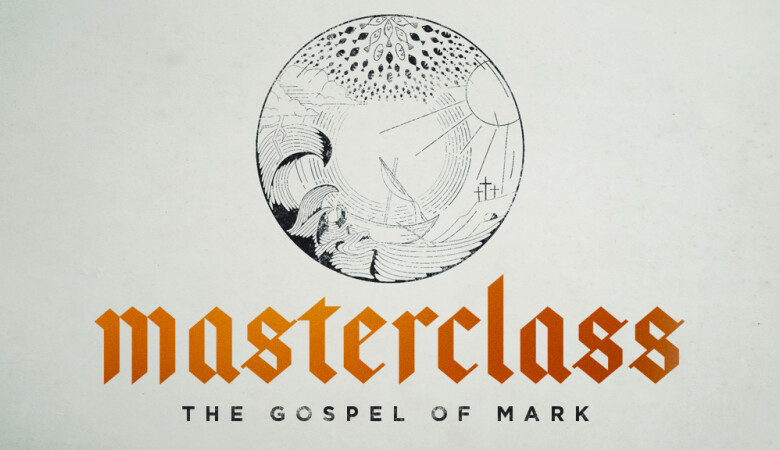Sermon Info
Summary
Any number of things can hold us back from experiencing the life Jesus yearns for us to have. From an attitude of superiority to focusing on myself more than focusing on God and others! Not to mention how tightly I hold onto my gifts and talents as opposed to bringing them to God for His plans and purposes. Throughout the Gospel of Mark, the authority of Jesus is central to a true understanding of who He is and what He has done for us. When we understand His sacrifice, our response is to naturally and thankfully, praise, worship, serve, and give all for His name and His glory!
Content
The Parable of the Tenants
In Mark 12:1-11, Jesus tells the chief priests and teachers of the law a parable. The story involved a man who rented his vineyard to a group of tenants while he lived in another place. When the man sent servants to collect some of the fruit at harvest time, the tenants abused and even killed the servants time and time again. Verses 6-9 read as follows:
“He had one left to send, a son, whom he loved. He sent him last of all, saying, ‘They will respect my son.’
“But the tenants said to one another, ‘This is the heir. Come, let’s kill him, and the inheritance will be ours.’ So they took him and killed him, and threw him out of the vineyard.
“What then will the owner of the vineyard do? He will come and kill those tenants and give the vineyard to others.
Jesus’ parable was incriminating to the Pharisees who were listening. They must have realized that they were the violent and unfaithful tenants in the parable. The man who rented the vineyard out is God the Father, and His servants were prophets who were rejected and despised. Finally, the Son sent last is Jesus. The parable that Jesus told was playing out in real time, and the tenants were about to kill the son.
What was at the heart of the disobedience of the tenants reveals the issue with the Pharisees. The tenants took advantage of the landowner’s absence. They were supposed to tend to the vineyard that was entrusted to them, but they yielded no fruit. The land was not theirs, and yet they acted as though they could do what they wanted with it, serving themselves, and rejecting any messenger of the landowner.
The religious elite, similarly, held positions of power in the church in Jerusalem. They had the responsibility of being faithful to their God, who gave them their position. But the religious elite instead mistreated God’s prophets, abused their authority over others, and yielded no good spiritual fruit. The church was never theirs, but God’s. And just as the tenants had the landowner to answer to after all their killing, so would the Pharisees have to answer to God at the moment He returns.
Paying Your Taxes
Then, the Pharisees came to Him again and began to question Him on whether or not the people should pay the imperial tax to Caesar. Remember, the jewish people were hoping for a physical, political Messiah, not a spiritual one. But Jesus did encourage us to keep our minds set on God’s Kingdom, not the things of the world. From verses 15-17, we read:
“Bring me a denarius and let me look at it.” They brought the coin, and he asked them, “Whose image is this? And whose inscription?”
“Caesar’s,” they replied.
Then Jesus said to them, “Give back to Caesar what is Caesar’s and to God what is God’s.”
And they were amazed at him.
Jesus makes it clear that He was not there to revolt against the physical and political ruling powers of the day. Instead, He draws a separation between the worldly and Godly systems. The economic system might have been in the hands of the Roman Emperor, but only because God allowed that to be. The Kingdom of God was, and has always been, ruled by God. That is the Kingdom which demands our hearts, souls, and minds. The Kingdom of God is eternal, and it dwarfs the dominion of world leaders and militaries and corporations.
We are not first called to fight to destroy the systems of the world, however wicked they might be. Our first priority is to bring as many people as possible from subjects of the world’s kingdoms to reliance on God and citizenship in His Kingdom. Fighting injustice, corruption, and tyranny are noble efforts, but if we are without God, our sinful nature leaves us bound to replace wrong with wrong. Man living without God got us into this mess since our days in The Garden. We cannot expect first to fix the felt needs of the world with our own strength!
Consider how we might speak to guests of our church who don’t feel good enough yet to come before Jesus: you don’t need to be perfectly presentable before you come to Christ. In fact, you never will be perfect on your own. Let Jesus meet you where you are. He takes you broken, hurting, and troubled.
Similarly, we cannot, as a world, build ourselves up on our own and only afterward turn to make conversions to faith in Jesus. We need to bring others to Jesus in love in the midst of despair and hopelessness. Our world doesn’t need a different political leader before we need Jesus. God’s lost people don’t need lower prices more than they need Jesus. If world peace were possible, it would not be better than the peace of God.

